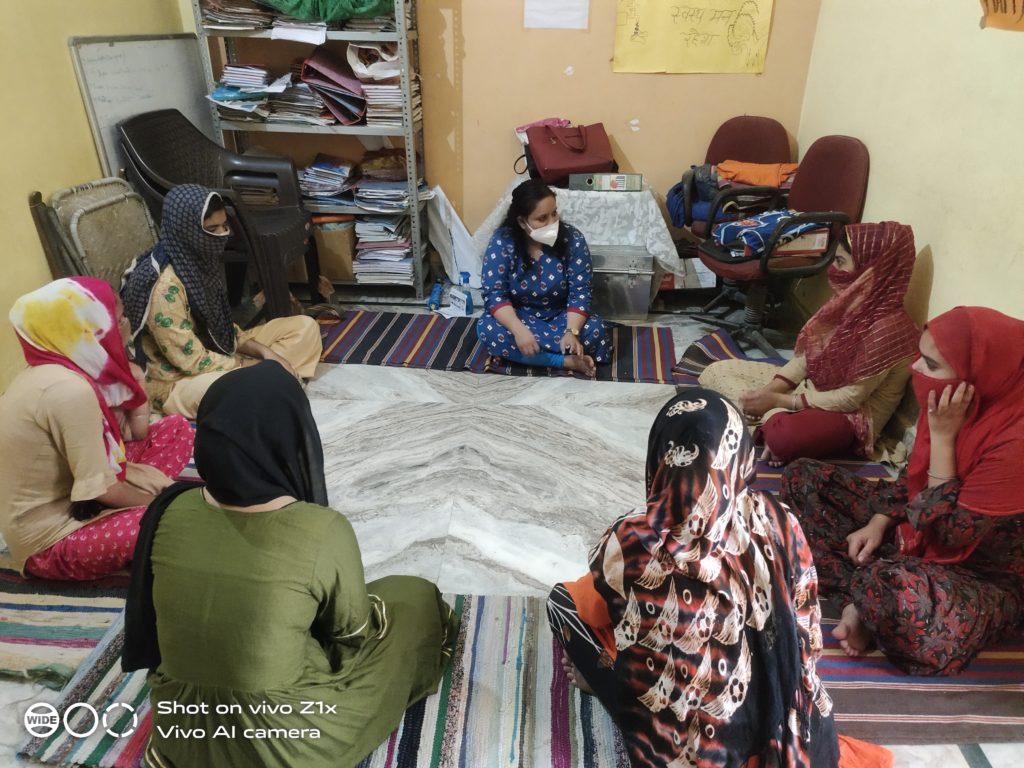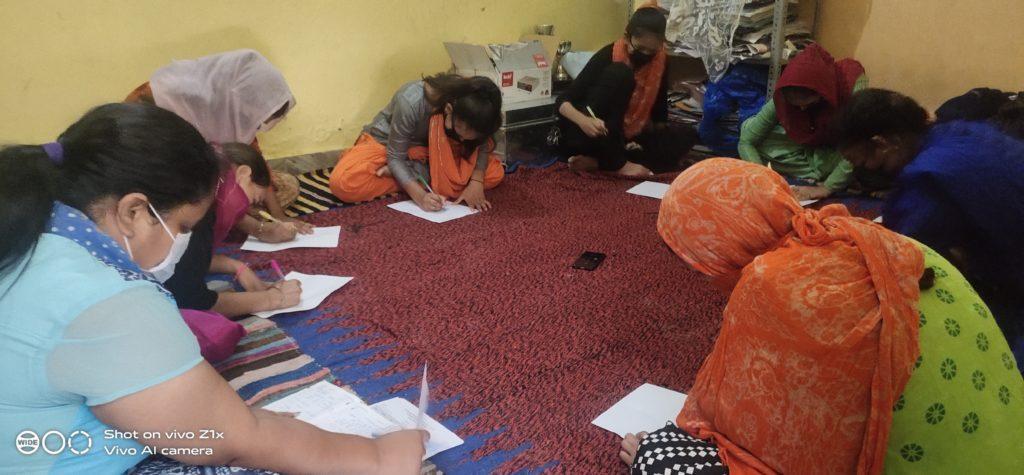
Benefit finding (looking for positive aspects while living through a difficult situation) is a skill we had probably practiced before, but COVID-19 pushed us all to identify good things coming out of a very difficult season for humans on planet earth. Benefit finding was a key concept as we implemented a resilience programme with young people living in informal urban communities in North India. Benefit finding isn’t the same as an oblivious optimism, and these sassy Sikh and Muslim young people found benefits emerging from difficult and even dire-seeming living situations:
“The plus side of my parents pulling me out of school aged 13 years is I got to know my grandmother really well before she passed. We laughed so much together.”
“Even though I really regret my two years of addiction, going through rehab built me a confidence and self-belief I never had, and that led to my current employment cooking with a wedding crew”.
One benefit in this persistent and perverse pandemic is the thinking, scholarship and voices recognising the value of communities to solve our biggest and most complex problems. These global conversations are playing catchup with key ideas that have been discussed among indigenous researchers for years. They acknowledge the importance of decolonising research and co-producing knowledge. They speak to the value of textured and in-depth understanding of contexts to develop locally relevant and acceptable solutions which increases equity for disadvantaged communities. They invite all of us who work for global health to humbly and reflexively review the ways we work and what we work on.
When communities and community-based organisations (CBOs) coproduce knowledge, it is more relevant, acceptable, appropriate, responsive and effective in generating change. Coproducing knowledge is something our community-based organisation, Burans has found can be challenging. Burans works with disadvantaged communities in Uttarakhand, North India, to promote mental health and wellbeing by building on their strengths and resources. Guiding our work priority setting is the Burans ‘experts by experience’ (EBE) advisory group which is made up of people with lived experience of mental health problems. Our hope is that community members advise us on the way we work, the type of work we do and the content of resources (e.g. posters and wall paintings) in promoting mental health in communities. However, this has not happened fully. We have all sorts of good excuses:
Sometimes we took decisions without including advisory groups: To be able to meet the funder’s deadlines we on occasion have made decisions without involving community advisory groups as gathering together and getting a consensus decision takes time. But instead could we have said that we can’t proceed until we get their sign off?
Sometimes we forgot to get the advisory groups’ opinion: We have described how one of us blithely sent off an abstract for a conference related to our work together without consulting those who co-produced this knowledge. What checks could we put in place to make sure we genuinely practice ‘nothing about us without us’?
Sometimes we disappoint our community advisors by coming back empty handed: One time we wrote a funding grant which was co-developed with a group of very engaged young people but we weren’t successful in gaining funding. They felt sorely disappointed: “So was all that work of ours for nothing?” asked two of the young women who had been so enthusiastic in developing our proposal. Should we have tried harder to run this programme by diverting other funding?
In all these scenarios we have asked ourselves, what could we have done differently to ensure people with lived experience are heard and their perspectives guide or even better, co-develop initiatives meant to benefit and support them. Co-developing of resources also generates belonging, confidence and satisfaction, as explained by an EBE member involved in co-development of a pictorial recovery tool for people with mental health problems: “I felt good being a part of the EBE group. I gained a lot of knowledge and confidence which I did not have before. I learned things about mental health which I did not know before. People used to feel shy and hesitate to talk about mental health…now, we tell others, and ask about them. We share information among ourselves.”
The strength of these groups is often ignored yet we have seen how adaptive they can be, e.g. once when our ‘expert by experience’ group members felt burdened by their own health problems in the North Indian context where there is very limited access to mental health services, the advisory group discussed among themselves and decided for a season they would operate as a psychosocial support group for each other until they felt stronger. Surely this kind of flexibility and compassion is requisite to build a healthier community? These groups bring with them their experience which makes them at least as informed, as well-being focused, as responsible, and as empathetic towards the cause as any academics, researchers or global mental health advocates.
The ’gold standards’ used for academic and research in global health are typically devised by people in high-income countries who don’t understand the challenges and opportunities of living in communities in the global South. The value of descriptive and observational studies, or ethnographic methods is that they are set in small, local communities, they build on long-standing relationships, and they can provide a clear and detailed description of a real-world context which can help us know what works for whom, under what circumstances. But global health has instead held up Randomised Controlled trials as the pinnacle methodology for evidence. The question posed by RCT is bald and bland: ‘Does it work?’. This then tests an intervention typically in tightly and artificially controlled contexts which are not easily generalised. It doesn’t answer the question – does this intervention work for everybody? In every place? This methodological supremacy can often act as a form of gate-keeping to limit participation in global conversations by community voices and civil society organisations.
In a recent commentary written by KM and others, we critique the almost universal barrier set up by academic journals who will not publish public health trials that have not been prospectively registered in a clinical trials registry. We describe how multiple journals would not allow us to submit a prospective cohort study we had initiated before we knew that clinical trials registries existed or that complex public health interventions should be registered. Community -based organisations often lack the financial and human resources to register interventions prospectively. Although the intent of providing accountability is good in theory, almost no journals or registries allow retrospective registration, and most registries don’t provide fee-waivers for author groups based in the Global South. And there are other ways to be accountable to communities. As we described in this commentary, “With engaged and non-hierarchical discussions, community members can assess relevance of research questions, accountability can be assessed by checking if the funding is used appropriately or not, whether findings are shared with participants or whether this leads to change in any government policy and services”.
To produce knowledge in a more inclusive and responsible way, we need to leave our comfortable hierarchies and build on values of inclusion. We need to develop processes that make us stop and listen to communities and recognise their expertise. Without their local knowledge we all fail. Only then can we develop partnerships of trust, that allow us to move forward in step, and together.
